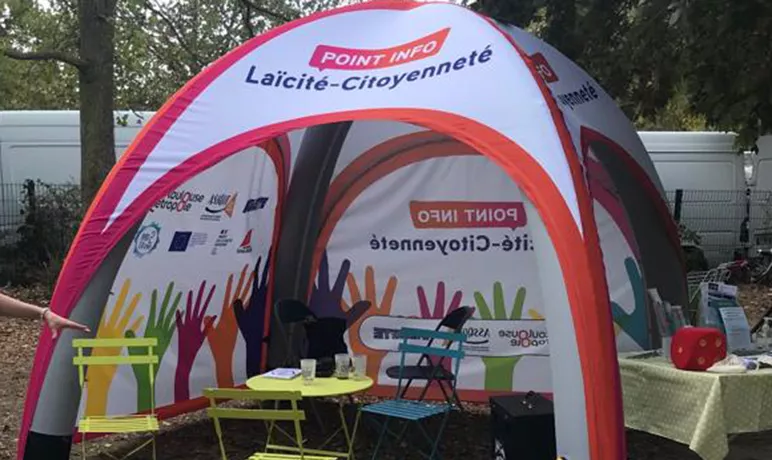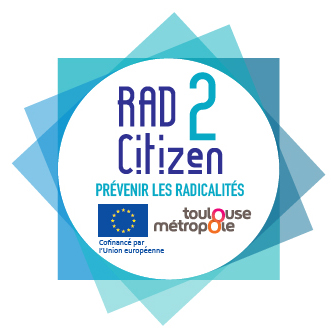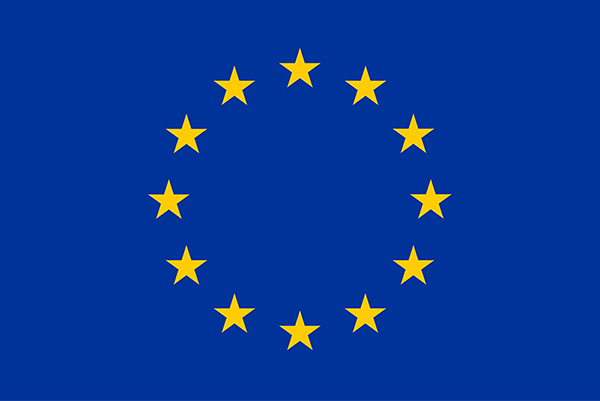Rad2Citizen - EN
Extremisms, ardicalisation and citizenship : the Rad2Citizen project aims to prevent radicalisation and the different forms of extremism, and the violence associated to them in the territory of Toulouse Métropole, targeting mainly a young public, as well as to promote access to rights and citizenship.

Context

Many European cities are confronted to various forms of violence that can be associated with different types of radicality. It is these extremisms that the Rad2Citizen project aims to prevent by establishing a partnership, led by Toulouse Métropole, with the city of Malaga and CIFAL Malaga (Spain), the University of Applied Social Sciences of Salzburg (Austria) and the KEMEA Institute (Greece).
Violent acts are more and more visible, they give rise to incomprehension, fuel the feeling of insecurity among citizens and contribute to a loss of confidence in the authorities and in public policy actors.
At European and metropolitan level, preventing such violences is a challenge. Rad2Citizen contributes to meet this challenge through a better understanding of these phenomena and the co-production of prevention tools intended to promote access to rights and citizenship.
Issues
- Apprehending violent extremisms at the Toulouse Métropole scale.
- Take into account the coexistence of different extremisms in the territories concerned.
- Co-produce shared and assessable actions to promote social cohesion and access to rights to citizens in the territory.
Objectives
Over a period of two years, the project is intended to:
- coordinating actors both locally and at European level
- compiling and analysing data
- building a common culture
- developing synergies between actions in order to harmonise the public response
In the long term, the ambition of the Rad2Citizen project is to enable local authorities to acquire strategic coordination and analysis processes, as well as practical tools for social intervention in order to implement participative, concerted and efficient public policies. These elements will then be transferable to other European authorities who will be invited to learn about the analysis methodology and the training courses developed.
Results of the project
- Identification manual for radicalisation indicators : The manual includes contextual indicators of radicalisation and polarisation for front-line practitioners, mainly from the socio-educational sector, but can be adapted by local authorities
- Evaluation report on the manual for radicalisation manual : The evaluation was done by a set of experts including both researchers and practitioners in order to ensure its relevance at both a knowledge and practical level
- Analysis report : a set of reports presenting the methodology and results of the territorial analysis at local and metropolitan level
- Mapping of problem areas of extremism : contributions of cartography to the description and understanding of territories analysed in terms of social cohesion and radical violence.
- Local analysis reports and action plans : a set of reports including European perspectives, national evolution of counter-terrorism towards prevention of radicalisation, and local identification of prevention actions and relevant actors
- Two formalized training programmes : A training program implemented in Toulouse Métropole for elected officials and a common training program realised online for frontline practitioners.
- Report on the diagnosis of situations - problems of radicalism encountered and the analysis of professional practices in dealing with these situations.
- Report on the field trial of tools shared and adapted within the consortium
- Identity Toolkit : Adaptation of the two primary prevention tools on identities: multiple identities and 5 pillars of identity from the University of Applied Social Sciences in Salzburg. This document is available only in French.
Digital Social Networking Toolkit : a series of workshops on how young people use digital social networks in their daily lives involving young people and professionals. This document is available only in French.
- Film: Crossed views on radical violence in Toulouse Metropole
The aim of the film is to discuss issues such as the different forms of radicalism and the violence associated with them. It is a tool for awareness raising, discussion, but also for taking action.
- Report on International and European content, practicies and experiences in the field of prevention of radicalisation
- Action and training plan to coordinate the management of migratory flows and associated identity conflicts.
- Training plan on the management of migratory flows and associated identity conflicts and evaluation of the implementation of the training.
Schedule
Duration of the project : 01/01/2020 – 30/09/2022
Funding
This project is funded by the European Union’s Internal Security Fund – Police. The total budget is 999 814,92 €. The European Union subvention is 899 833,43 €.
Partners

Toulouse Métropole, coordinator, is a public institution of inter-cities cooperation in France, bringing together 37 municipalities, including the City of Toulouse (4th French city), around a common planning and development project. Toulouse Métropole has a number of missions, including solidarity, which includes juvenile delinquency prevention, youth prevention and access to rights.
KEMEA : Kentro Meleton Asfaleilas
The Center for Security Studies (KEMEA) is a scientific, consulting and research entity aiming at conducting theoretical and applied research and providing services on security at both national and international level. KEMEA is based in Athens and, according to its institutional framework, is the Hellenic Ministry΄s of Interior ″think-tank″ on internal security and anti-crime policy. Established by the Law 3387/2005 and supervised by the Alternate Minister of Citizens Protection. A main objective of KEMEA is to bring together all national Law Enforcement Agencies and security and civil protection practitioners from different governmental levels.
Ayuntamiento de Malaga
The City Council of Malaga ( Ayuntamiento) is the public body charged with the municipal government and administration. The Plenary of the City Council is formed 31 elected municipal councilors, headed by the Mayor. Citizen Participation, Migration, External Action, Development, Cooperation, Transparency and Good Governance Department has a key role among with other 7 government areas of the City Council. It is a member of the Strong Cities Network (SCN) and the European Forum for Urban Security.
Fachhochschule Salzburg
The Salzburg University of Applied Sciences was founded in 1995. It has around 500 lecturers and researchers and over 2000 students. The Research Group on Social Innovation of the Department of Social Work brings together social scientists, political scientists, social workers, pedagogues etc. It has carried out a high number of research projects from the local to the regional, national and European level. Main fields of research are social and political inclusion, democracy, empowerment, citizenship education, participation, social cohesion, public health and futures research.
CIFAL Malaga
The Association CIFAL Málaga was established in March 2019, as a non-governmental non-profit entity. It supports the activities of the United Nations Institute for Training and Research (UNITAR); CIFAL Málaga aims to provide opportunities for training and exchange of good practices, tools and strategies between local and regional authorities, international organisations, private sector and civil society; and to support local actors, improving their decision-making processes by increasing their leadership in their implementation of innovative solutions at the local level, so that all this has an impact on the achievement of the Sustainable Development Goals of Agenda 2030.

This project was funded by the European Union’s Internal Security Fund - Police under grant agreement No 871092.
